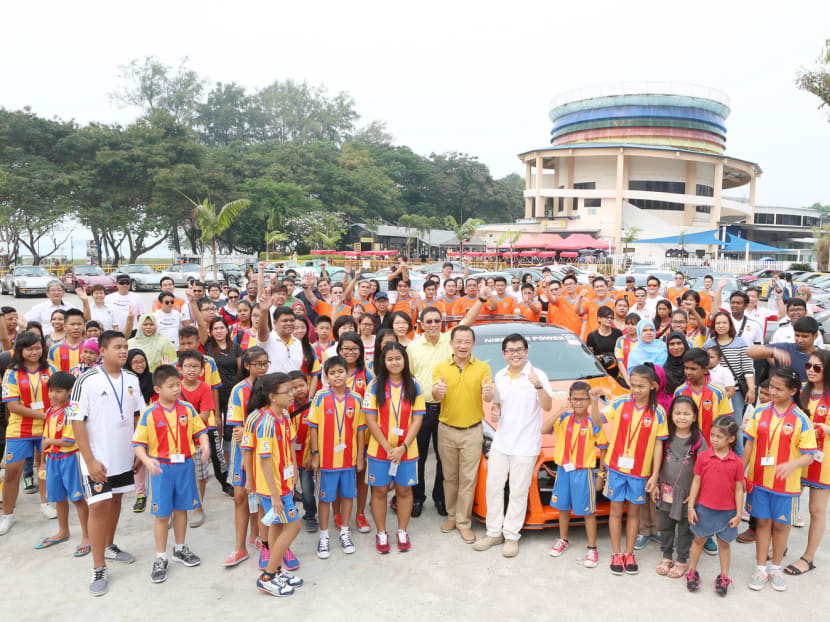Luxury-car drive may do kids more harm than good
I read with concern the report “Less privileged children get driven around in luxury cars” (Sept 28), which detailed how 42 children whose parents had been or are in prison were given a 30-minute joyride in luxury cars.

The beneficiaries and organisers of an event in which underprivileged youth and children were driven around in luxury sports cars last Sunday. While the letter writer says he understands the organisers’ good intentions, he questions the wisdom of the event or what an ostentatious display of wealth to the underprivileged is meant to achieve. Photo: ISCOS
I read with concern the report “Less privileged children get driven around in luxury cars” (Sept 28), which detailed how 42 children whose parents had been or are in prison were given a 30-minute joyride in luxury cars.
First, while I understand the organisers’ good intentions, I question the wisdom of the event or what an ostentatious display of wealth to the underprivileged is meant to achieve.
What values are we communicating to these children, consciously or otherwise — that they should aspire to the accumulation of fleeting status symbols in their lives?
I am not against the pursuit of material wealth, but I believe Singaporean society has matured to the point that we recognise there must be other ways to define success.
I hope these young children, having been beneficiaries of the good work of the Yellow Ribbon Fund, will grow up to see contributing back to society as their ultimate goal.
Second, it is known from psychological research that inequality has deleterious effects on the physical and mental well-being of people, including children. Social psychologist Paul Piff said in a recent interview with non-profit conference organiser TED that people who feel “subjectively lower on the social ladder or who are objectively poorer” are at higher risk of depression.
The experience of inequality affects people’s outlook on life and how they view themselves and their prospects.
I am aware that some of the children might have desired or been dreaming of this. In the short term, it may give them a psychological boost and perhaps spur them to work harder. But in the long run, such an experience risks worsening the painful awareness of the gap that exists between the haves and have-nots in our midst, which may achieve more harm than good.
It would have been more meaningful to organise an event where the children could get together with their families, including their parents in prison, if possible, for some precious family time, doing things they enjoy. Or perhaps an event that allows the children to interact with youth from other segments of society.
In the spirit of the Yellow Ribbon Project, what these children need is better integration into society, not exposure to a lifestyle that few in the world can and will achieve.






